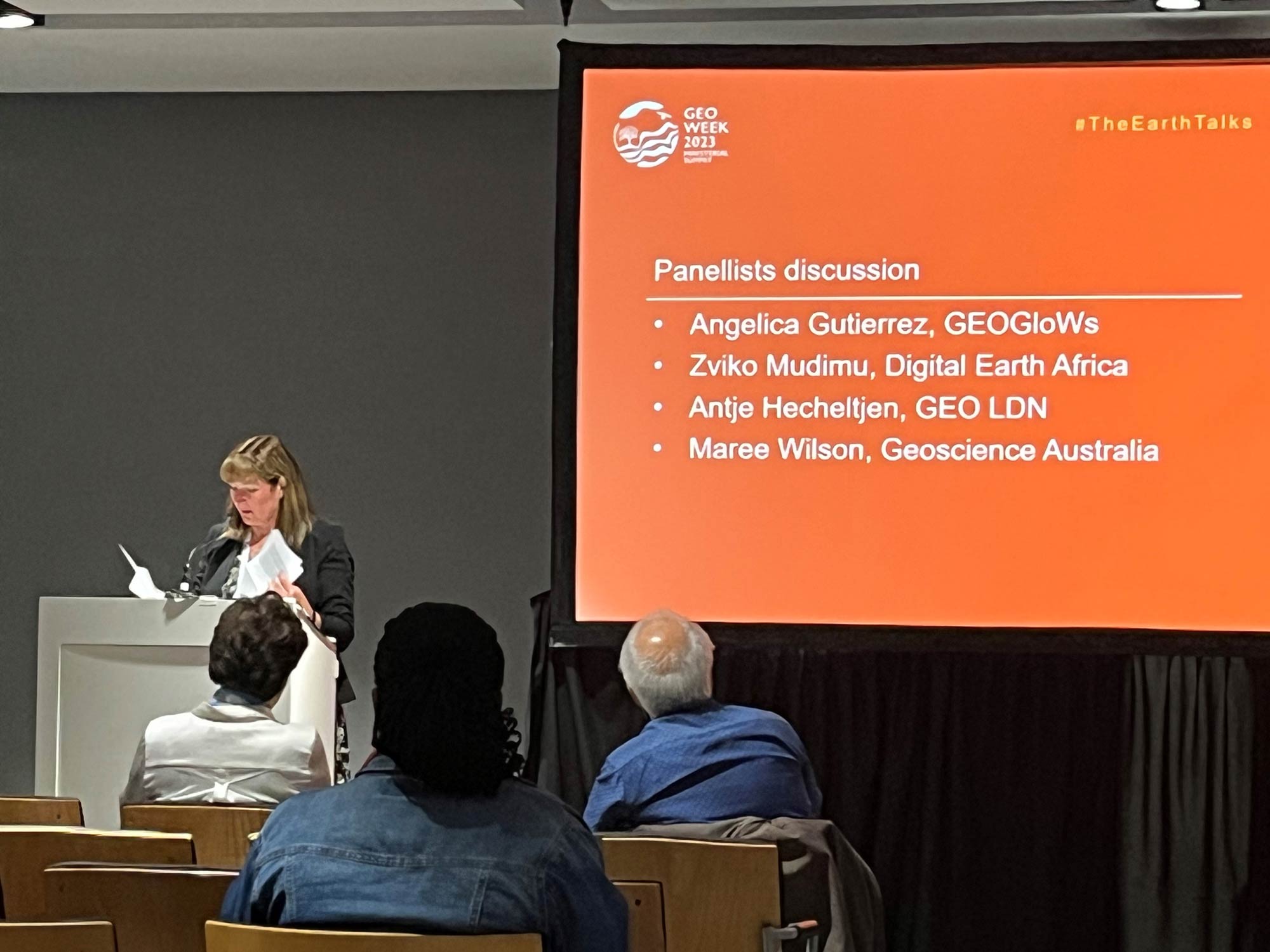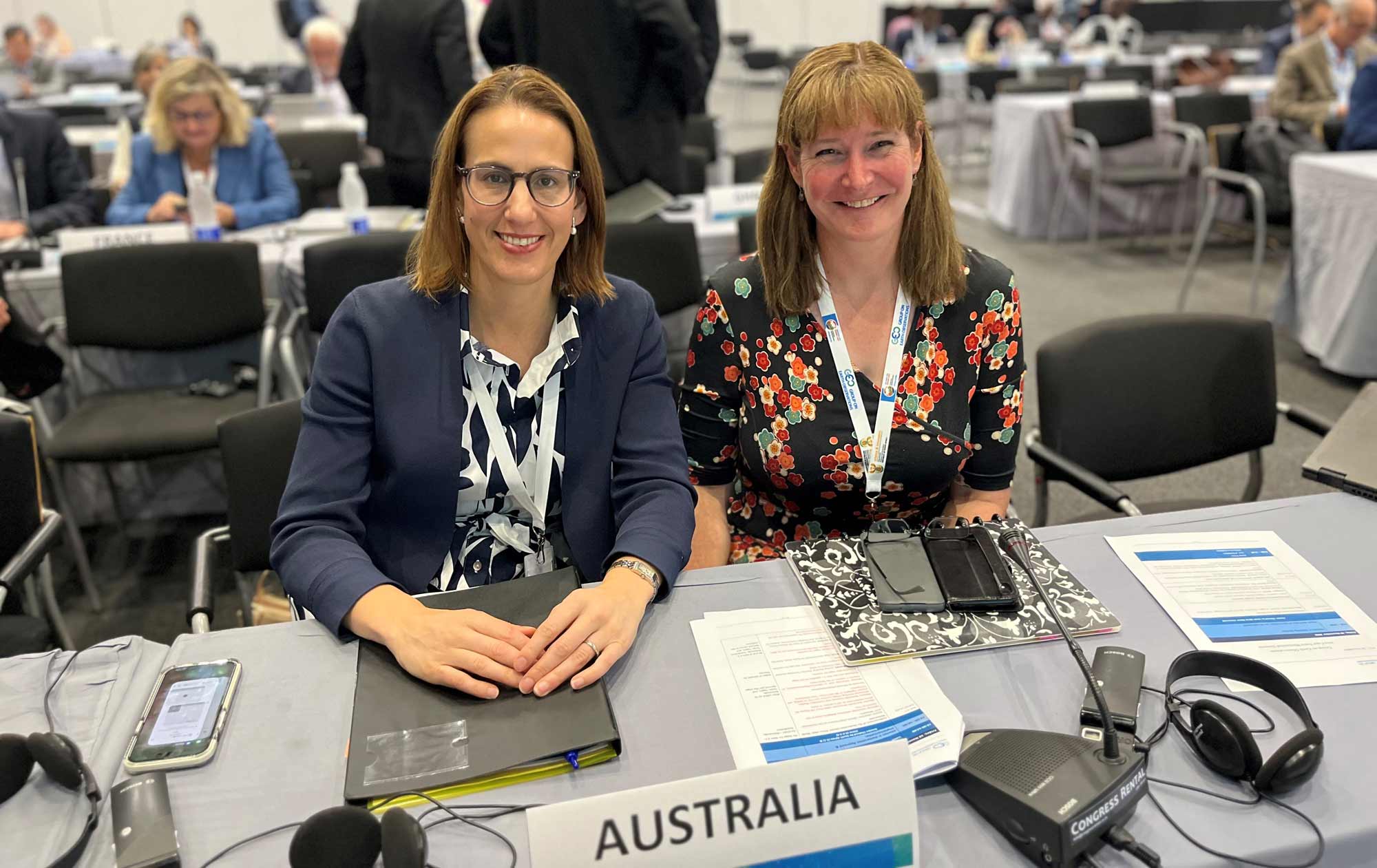News
Geoscience Australia on the world stage of Earth Observation
Published:15 November 2023
Australia has endorsed a post-2025 strategy that will provide a clear vision for the Earth Observation community to work together to address climate change, natural disasters and food security.
The strategy was released by the Group on Earth Observations (GEO) – an international group made up of 116 member countries, including Australia – at the GEO Week conference in South Africa last week.
Geoscience Australia’s Head of Digital Earth Branch, Maree Wilson, said Australia was proud to be a valuable member of the global Earth Observation community.
“The modern world is facing increasingly complex challenges,” Ms Wilson said.
“We need targeted and actionable insights, and we need them to be based on Earth Observation data that is co-created with users.
“This will enable all of our member countries to make better informed decisions for a more sustainable world.”
Geoscience Australia is the Australian Government’s lead agency for land remote sensing, and a valuable partner in the collection, processing and application of Earth Observation data.
“We’ve been working on Earth Observation in collaboration with international partners since the 1970s, and we’re thrilled to be taking this work to the next level with the new strategy,” Ms Wilson said.
The post-2025 strategy offers a vision for global partners to urgently step up the pace of action to tackle the triple planetary crisis of climate change, biodiversity loss and pollution.
“Earth observation information is vital for monitoring and evaluating progress as we take steps towards building a more sustainable planet, and we can use it to do more.”
A key component of the post-2025 strategy is Earth intelligence; expanding the use and value of Earth Observation services to become a fundamental pillar of knowledge-based decision-making for sustainable development.
“In the spirit of open knowledge, data sharing and collaboration, GEO comes together every year to discuss the possibilities presented by Earth Observation data from satellites,” Ms Wilson said.
The GEO Week conference was an opportunity for Ministers from GEO’s member countries to come together and discuss global goals, strategy and collaboration. The post-2025 strategy will guide GEO’s work into the future.
“The benefits of satellite data are well known to Geoscience Australia, as we have been collecting, maintaining and analysing large amounts of Earth Observation data for decades.”
Geoscience Australia’s Earth Observation products, such as Digital Earth Australia, make Earth Observation data widely and openly available.
Ms Wilson said that the Digital Earth Australia program continued to allow problem solving at a national scale, from monitoring changes to the Australian coastline to tracking the location and extent of waterbodies across the continent.
This model was well suited for expansion into Africa, a continent that faces a similar range of challenges in water availability, environmental monitoring and natural hazards to Australia; therefore, Digital Earth Africa was launched in 2019.
Now successfully established, Digital Earth Africa provides open-source data and products to support African governments, industry and decision makers to assess, plan and protect their countries from the potential impacts of climate change.
“The world is facing a complex and uncertain future, and we can pursue opportunities and the untapped potential of Earth Observation to respond to these challenges,” Ms Wilson said.

